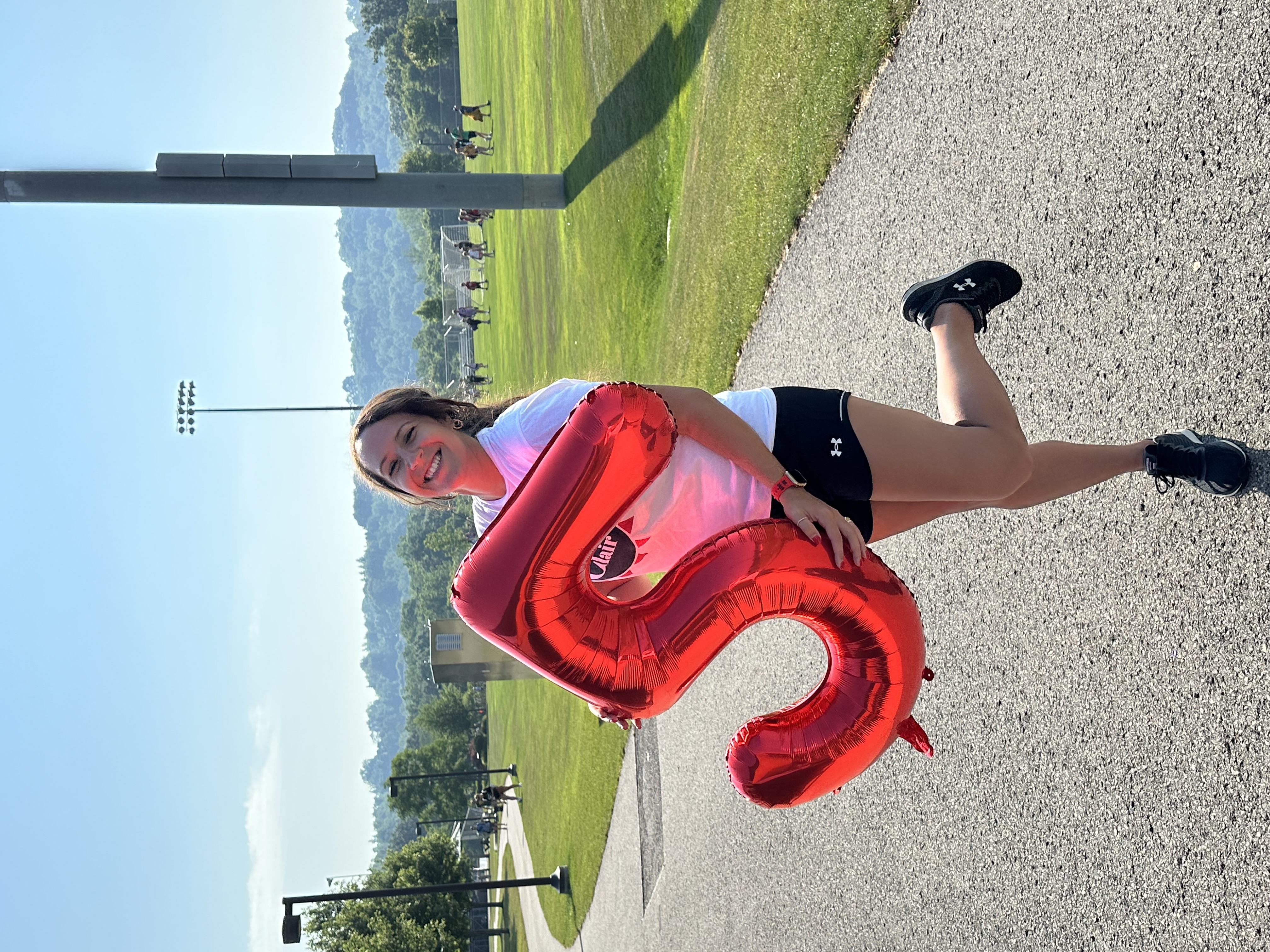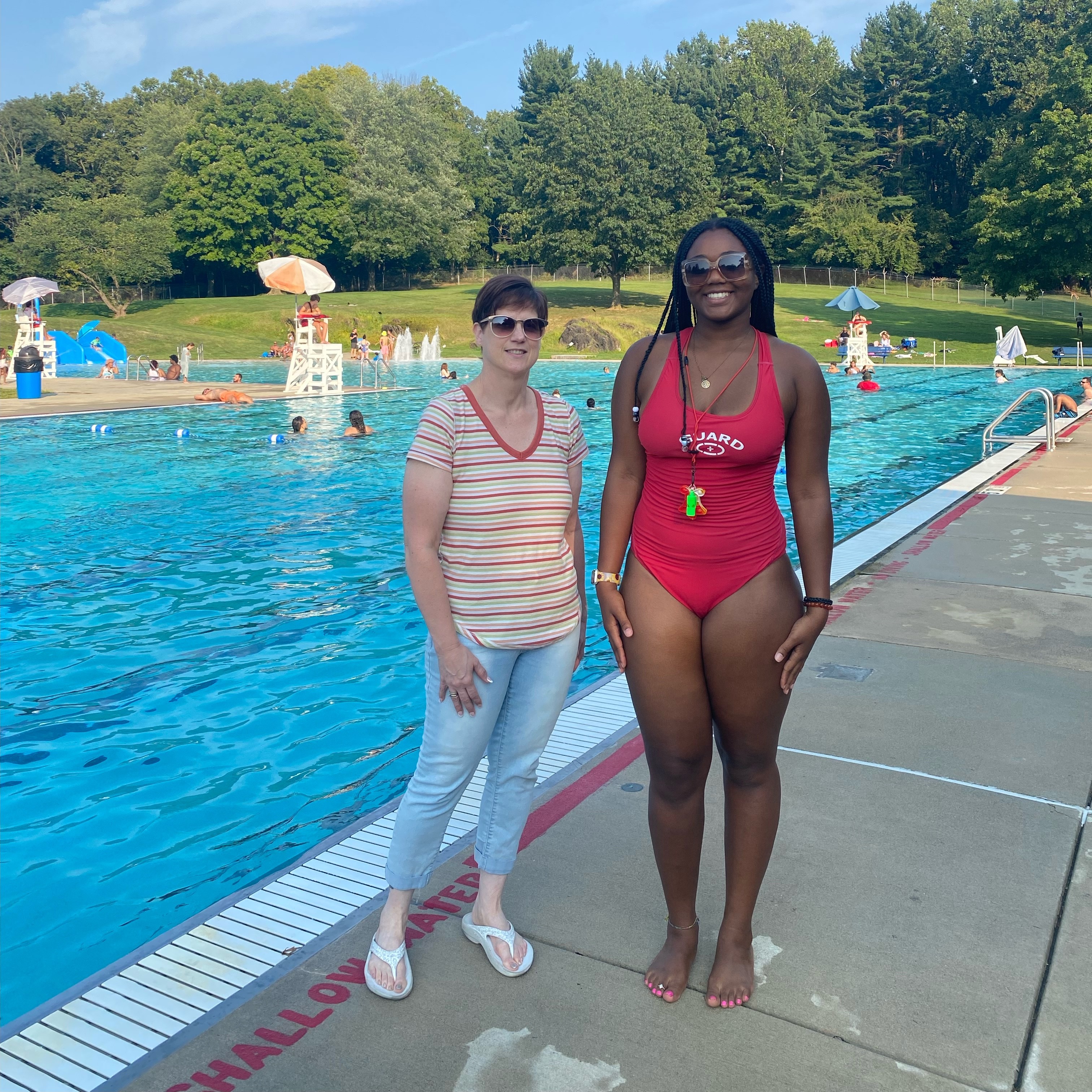Every day, park and recreation professionals provide essential services and maintain essential infrastructure that supports and improves the health and well-being of the public. We need your help in communicating the importance of our work to Pennsylvanians and our funding partners, including the state Legislature. Storytelling Ambassadors naturally communicate the value of parks and recreation and PRPS through story.
Amanda Pozzuto, CPRP, Recreation Supervisor, Township of Upper St. Clair
I had always attended summer camps growing up, but I had no idea that one would lead me to my career in parks and recreation. I went to college believing that I would become a history teacher. I had always loved working with kids and found history interesting, so it seemed like a no-brainer at the time. On a whim, my roommate and I decided to apply to be counselors at overnight summer camps, just for the “Parent Trap”-like experience. I went for the first time, and not to sound too cliché, but it changed my life. I couldn’t believe that a place like this existed – where your biggest concern was making sure your camper didn’t eat too much candy before bed or if your best friend was on the opposite team during Color War. Every summer for 3 summers after that, I did what we called “waited 10 for 2”, or waited 10 months for the best 2 months of the year at camp.
When I went back to college, I knew I no longer wanted to work with children in an academic setting, but a recreational one. Watching campers form personal connections with each other, gain independence, and thrive away from home was something I never wanted to forget. I graduated with a bachelor’s degree in history, and attended graduate school to obtain my master’s degree in Recreation and Parks Management, hoping that it could someday lead me back to a camp full-time. I knew nothing about day camps, but the director of one in my hometown took a chance on me and gave me my first leadership role. As I wrote my thesis about camps and looked up to him, I started to believe that it could be possible to make it my career. The Jewish Community Center of Greater Pittsburgh, who operated the day camp, made it possible for me to work year-round in other departments while returning to camp each summer. I thought, yes, THIS is the way I can accomplish my goal.
In 2019, I accepted a position at the Township of Upper St. Clair where I’ve been ever since. While my duties include a host of other things besides summer camp, our day camp, Camp St. Clair, is of course my favorite part. I think I’ll be 90 years old and still not tired of telling the story of our camp that stumbled into existence during the Covid-19 pandemic out of the need to provide children with hope, optimism, and normalcy. We celebrated our 5th summer this year, having triple the amount of both campers and staff. I see the impact that our staff and programming have on our campers and I could not be more grateful to learn, grow, and change alongside them each summer. I have not missed a summer at any type of camp since 2002 and don’t plan on doing so anytime soon, thanks to my year-round job in parks and recreation and the Township of Upper St. Clair who have helped to shape me into a well-rounded recreation professional!
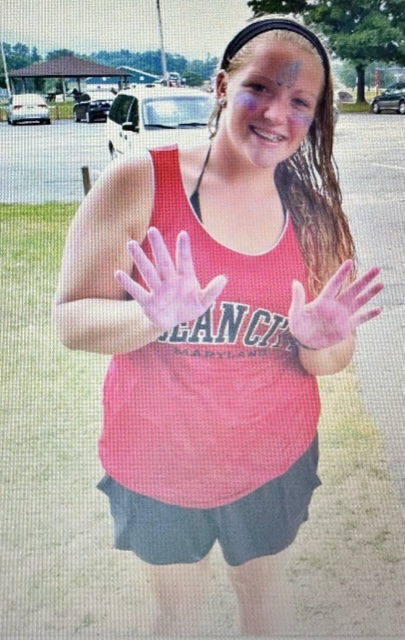
Kelsey Paul, CPRP, Recreation & Community Center Manager, Carlisle Parks & Recreation
If you could’ve told 16 year old me that I would be organizing camps, coordinating sports leagues, managing a community center, going to concerts in the park, and ultimately creating and planning fun opportunities for the community, I wouldn’t have believed that is what I get to do on the daily. My first job was as a Camp Counselor, working for the Parks and Recreation Department in my hometown. After those few summers, I went to college with all intentions of studying Early Elementary Education, but made the decision to swap majors based on one conversation I had with a Recreation Management Professor. Who else can go kayaking, hiking, play sports, & attend a sleepaway camp all during class! “Parks and Reccers” are a different kind of people & understand each other, so after that one conversation, I knew I had to be a part of the most fun major and career path!
Parks and Recreation is such a wide scope and always has something for everyone. I love that I can create and implement those special things, offer the space, or put on that concert or sporting event to make people happier and strengthen their quality of life. What we do every day is so important and essential for the health and wellbeing to those in our communities. No matter what you plan or offer, you know someone is participating or apart of it because it brings joy to them. Nothing makes me happier than seeing someone smiling and dancing, providing positive feedback, or continually seeing the same face at multiple events or activities. That is how I evaluate success and the rewards of this field. Go out to your local park, take a new class, or tell your parks and recreation departments “thank you” because they do everything they do, for you to make it a better place to live and play.
Tammy Agesen, CPRE, AFO, Program Manager
County of Lancaster Dept. of Parks & Recreation
In early May of 2022, it was evident that Lancaster County Pool would not open Memorial Day weekend for the first time since it was built in 1967. This realization resulted from a national lifeguard shortage, increasing demands on potential lifeguards, and of course, the global Covid pandemic. Stressed did not come close to describing my state of mind at that time. I was concerned that I could lose my job of 18 years, worried about the lifeguards and pool staff who were counting on summer employment, and I felt like I had disappointed the residents of Lancaster County. And then, I had to tell the Lancaster County Commissioners and other department leadership.
I had been recruiting potential lifeguards since November of the previous year. I had worked hard, using all of the traditional tools, and yet, I only had 6 guards committed to working. I was confused and devastated and questioned whether I was even capable of working in this industry.
After a week of meetings and assessments, the Board of Commissioners announced that our pool would not open on time and most likely not at all that season. This was truly the worst moment of my 25-year Parks and Recreation career. But, in retrospect, it was also one of the best!
The backlash from residents and community leaders was brutal. No one understood what it took to become a certified lifeguard, or what is required to operate a 485,000-gallon public swimming pool safely and legally, but EVERYONE had an opinion on how I had failed. After my pity party for one, much prayer and reflection (and at least a week of sleepless nights), I picked myself up off the floor and vowed (if only to myself) that I WOULD find a way to open the pool by mid-July.
During one of those sleepless nights, an idea formed. It was many ideas rolled into one program that I was going to call “Rescue Ready”, and it required a completely different approach to recruiting and training lifeguards. The days of posting open positions on Indeed, employment ads in local newspapers, and sending flyers to local high schools, colleges, and swim teams were over. Those tactics are no longer successful, this generation of potential lifeguards is different. I was determined to invest time, energy, and resources like never before.
Step one was to reach out to all of the community groups that were criticizing me, and a few that had not. I worked with the Principal of the high school located in Lancaster City. I asked if he would help me to recruit students who may be interested. I gave him the basic requirements and asked him to think beyond the “swim team kids”. I visited the school and shared YouTube videos as well as the perks of this type of job. I also reinforced that we needed them to help save summer; that lifeguards are first responders; that lifeguards are superheroes. I did the same thing at a local private high school. I also reached out to a friend at the local YMCA and asked if she could help me assess candidates and work with them to improve the skills needed to pass the lifeguard course pre-test.
After about 10 days, I had a list of 23 interested students from the public high school and 9 from the private school. We assessed them at the pool in the basement of the high school. Many arrived without bathing suits and swam in shorts and T-shirts. Of those interested, only 2 were ready to take a lifeguard course pretest, but another 10 had potential. Of the 9 interested students from the private school, 3 were ready and 3 had potential.
The YMCA not only helped assess candidates’ abilities, but they also worked with each of those who needed skills refinement and they certified 10 lifeguards for free. I worked with candidates to complete employment applications and background checks, offered rides to obtain drug screens, and obtained bus passes for fingerprinting appointments. I also helped to arrange carpooling for some lifeguards to get to and from work. To keep this story short, I’ll skip to the good part: the pool opened the weekend before the 4th of July and did not close a single day due to inadequate staffing.
During the off-season, I invited others to join the Rescue Ready planning team and reached out to additional community leaders. I obtained a $2,000 donation from a local swim foundation to use towards lifeguard certifications and started a mentorship program between current lifeguards and potential candidates.
For the 2023 season, we had the most lifeguards on staff in the history of operating the pool (32). Throughout this process, I’ve learned a lot, I’ve developed new relationships and we’ve developed stronger, more professional lifeguards that are always Rescue Ready.
Some of the morals of the story: It’s never too late to teach an old dog (or Parks & Rec professional) new tricks, your competitors can also be your partners, risk-taking is essential to good results, you need to think outside of the box, employee/employee relationships are much more than a contractual agreement and this generation of young people has a lot to offer their community – when someone invests in them, and shows that they care about them, they will work very, very hard for you.
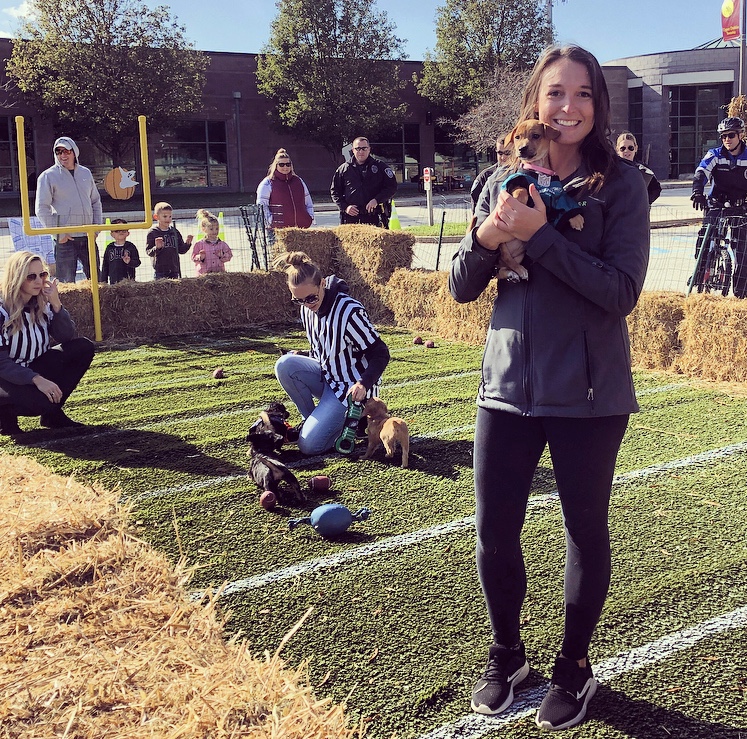
Erin Timby, Recreation Coordinator, Upper Dublin Township
Rewind back to 2019, a simpler time before anyone had heard of the term “social distancing”. I was in the midst of planning five large unique and innovative community events in celebration of Upper Dublin Township’s Tricentennial, framed as “three hundred years of community, health & happiness”. As the year went on, we saw more and more people at each event, watching as word spread and excitement grew. As the celebration came to a close, we had welcomed over 25,000 attendees of all ages, significantly increasing awareness of Upper Dublin Parks & Recreation and all of the great opportunities we offer. As a department, we took notice of this surge of community participation and pride and were determined to keep this momentum going as we entered 2020.
With that energy in mind, suddenly facing a pandemic with “stay-at-home” orders seemed even more surreal and striking. How could we pivot in an unknown landscape when we were poised for growth, especially understanding how central we were to our community? As a Parks & Recreation professional, I leaned on creativity, flexibility, adaptability and keeping up to date with the newest trends, all keys to providing quality programs for residents. Even while canceling previously scheduled events, we looked for ways to keep our community engaged and healthy during this unprecedented time.
At first, the main way to stay connected was online. We immediately expanded our social media presence, posting activities, crafts, games, challenges, and puzzles. We worked with instructors to create programs formatted for a virtual setting. However, keeping people outdoors and active is extremely important to me, something that became even more critical for physical and mental wellbeing during the quarantine.
To meet this goal, we used our online platforms to offer park challenges and scavenger hunts throughout Upper Dublin. For example, we created Clue: UDP&R Edition, challenging our residents to solve a whodunit mystery scattered throughout our park system. A spinoff version highlighted the Spotted Lanternfly and its associated environmental issues. The best part? Many participants discovered a new favorite park during the challenge. We also encouraged residents to take part in an Easter Egg hunt, providing a blank egg template for participants to color and hang up in their windows for others to walk around their neighborhoods and find. To help people stay active, we rented out our fitness equipment while our in-person group classes were on hold, as gyms were closed and supplies were extremely hard to find.
Meanwhile, we were busy creating reopening plans, health & safety guidelines and protocols to safely begin offering in-person camps and programs as soon as possible. When given the green light, we opened our Education Support Program after identifying a critical need for parents to have childcare during virtual school. Each day we saw children learn how to be more independent and resourceful during a new and difficult time for families.
Upon reflection, I can see a silver lining to the COVID-19 pandemic: a time for Parks & Recreation to shine as an essential public service.
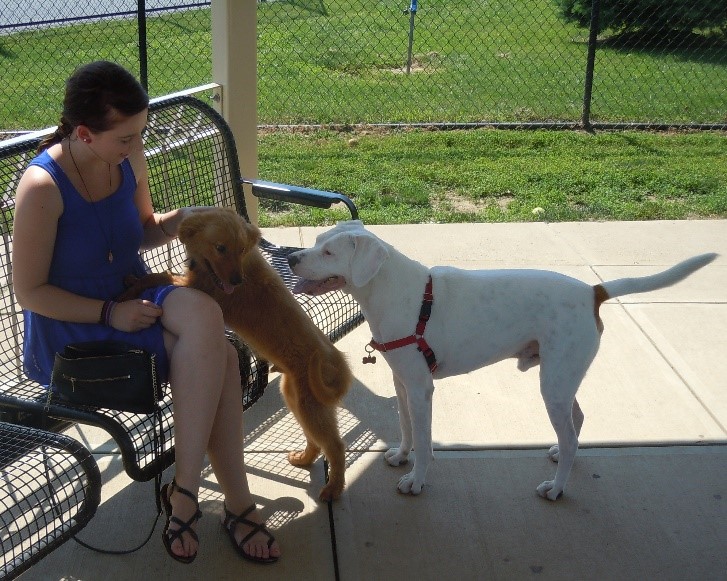
Ken Lehr, Park & Recreation Director, West Goshen Township
Opening a new facility comes with a great deal of apprehension. Not only was West Goshen Township opening its first dog park in 2005, this would be the first dog park in the greater West Chester area, as none of our neighboring municipalities had any dog parks.
We had researched thoroughly prior to the opening of Roonie’s Canine Corner. Township staff members had visited other dog parks throughout Southeastern Pennsylvania. I had attended as many education sessions I could about dog parks through the Pennsylvania Recreation and Park Society, and contacted Park and Recreation Departments across the state to determine best practices regarding dog park rules. Still, there were questions we would not know the answer to until “Roonie’s Canine Corner” would actually open. Would people pick up after their dogs? Would our Parks Department face maintenance issues they were not ready for? Would we face any dog attacks on other dogs or people? Would dog owners let their dogs run off leash across the parking lot creating a traffic hazard? Would I need to act as arbiter between disputing dog owners?
Sixteen years later, I can say that many of our concerns were realized, but the value of the dog park to the community makes it worth the negatives. The percentage of dog park visitors who pick up after their dogs is lower than the 100 percent we would like. The grass in our three-quarter-acre park started receding like a middle-aged man’s hairline within two months after the park’s opening, and the park is now nearly bald with minimal coverage around the edges. I occasionally hear word of conflicts resulting in dogs being rushed to the veterinary hospital conveniently located across the street from the dog park or owners requiring stitches after dog bites…but these incidents seem to be handled directly by the dog owners without getting the Park and Recreation Department involved.
In turn, dog park users constantly express gratitude for a place to have their pets exercise. One visitor told me her dog used to chew up her sofa cushions before her vet (at the veterinary hospital across the street) told her to bring her dog to the dog park each day for a half-hour of exercise. She said her dog now is much calmer around the house. People in townhouses and apartments are grateful for any outdoor space they can use.
The most surprising benefit of the dog park is the sense of community it has created. Most dog park users visit the park at the same time every day. As a result, dog owners see the same people each day at 8:00 AM, noon, 5:00 pm, 7:00 pm, etc. At first, they may not know each other’s name, but will learn the names of each other’s dogs. Then they learn more about one another and friendships form. I have heard stories of dog park users dog sitting for one another if someone goes on vacation. One gentleman in his seventies even suggested we host a singles hour, a designated time when young people could come with their dogs to meet other single dog owners.
Four years after it opened, the Board of Supervisors voted to close the dog park due to maintenance concerns despite the objections of the Park and Recreation Department. One month later, they reopened the park, as one Supervisor said he realized it would be “political suicide” to keep it closed. The public’s support for Roonie’s Canine Corner reinforced to me the importance of two of my key tenets as a Park and Recreation Director: Providing a valuable public service, and fostering a sense of community.
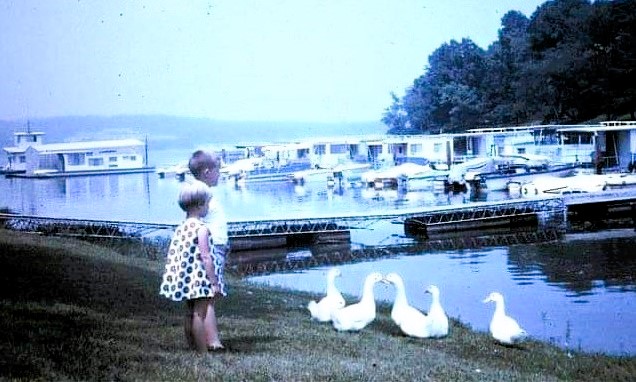
Tonya Brown, Retired Director
The free summer playground program that became popular in my hometown in the late 60's, helped to shape who I am today. As I am writing this, the experiences flood my mind. Endless days of free recreational play.....it's what I did all day, every day, from sun up to sundown. Those days taught me to enjoy and appreciate the outdoors, skipping stones on the pond, turning over rocks in the cold stream catching numerous crayfish, the comradery of group games, board games, and even arts and crafts. The quality time with enthusiastic, fun-loving physical education teachers who were, unknowing, influential to a young person like me. The benefits of such play led to benefits of skill related fitness, cooperation, teamwork, and leadership and conflict resolution. I looked upon those summer days anxiously, and still do; seeing the smiles of children's faces as they create their own memories to reflect upon later in their life. Those images remind me of the value and importance of children growing in life thru play. Play ultimately is a child's work. I am hopeful you have a similar reflection of your childhood being as instrumental in shaping your being.
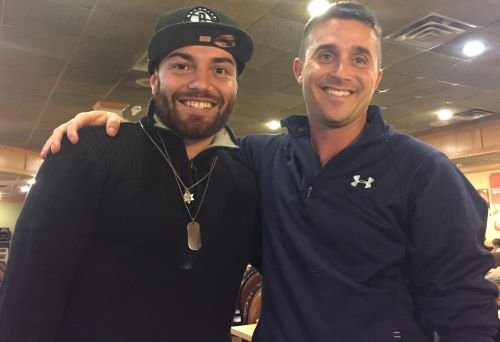
Jason and Mike
Summer Camp is special. As a kid growing up, I learned to swim at camp, make new friends at camp, even kissed my first girl at camp! Looking back, the many years I attended summer camp had such a positive impact on my development as a person, both as an individual and as a member of the community as a whole.
I have now been a Recreation Professional for the better part of ten years - but my real recreation career began when I was at Penn State finishing up my Bachelor’s Degree in Political Science. On a whim, I took a job at the Bethlehem YMCA as a summer camp counselor.
That first summer, I had a 10 year-old camper named Mikey Rodriguez. Mikey was unlike many of the other campers, he barely said a word, but spoke with his actions. When I asked him to turn left, he would turn right. When I asked him to run, he’d walk. He was openly defiant at every opportunity—and boy, what a challenge! I looked at his camp file, and of course, he was scheduled for every camp day, all summer. To me, that meant I was either going to get through to this kid, or there were going to be fireworks all summer! Slowly, as the summer progressed, and Mikey felt more comfortable in the ebb and flow of camp, he changed...dramatically for the better. I could see his confidence amongst his peers grow and his sense of self-identity emerge—he said, “Jason, someday, I’m going to become an Architect”. Wow! To see the transformation from openly defiant to “Architect” was amazing! By the end of summer camp, Mikey was stuck to my hip, helping me with every aspect of the camp, and I think we were both sad to see the last day arrive.
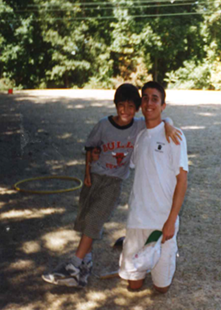
During the last day of camp, Mikey ran up to me, kind of nervous, and said, “I have a present for you…”. I was fully expecting a card, or letter, something thoughtful yet commonplace in that setting. He pulled from behind his back, a dirty, old, stuffed bunny. I said, “Wow, Mikey, thanks…”. I thought, as any 19 year old would, that it was kind of a peculiar gift. Mikey ran off to play basketball and his mom quickly came up to me and gave me a big bear hug. I told her thanks, but that I couldn't accept the gift. She said, “You don’t understand, that bunny is what he had in his crib as a baby, its his most prized possession, you changed his life, you need to keep it…” I knew then what my true career path would be...and it wasn't Political Science. Working at camp taught me many things: accountability, timeliness, how to communicate effectively, and many more skills I use daily in my professional career.

